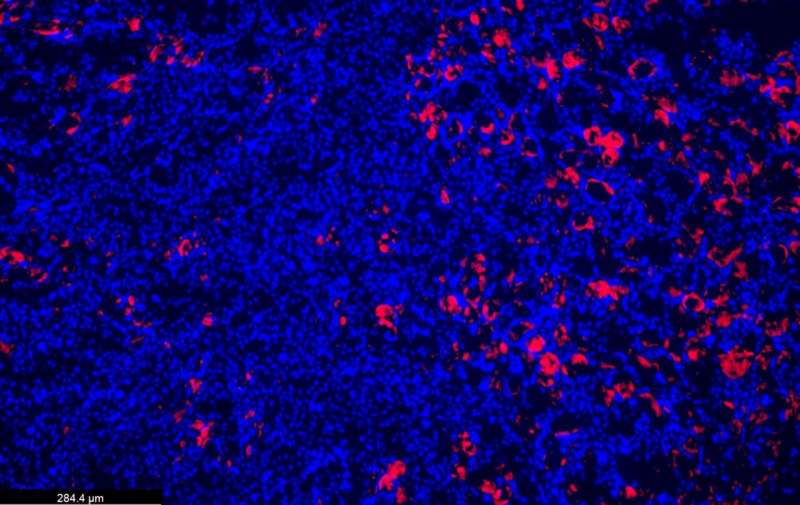This article has been reviewed according to Science X's editorial process and policies. Editors have highlighted the following attributes while ensuring the content's credibility:
fact-checked
peer-reviewed publication
trusted source
proofread
Inflammation 'brake' gene may help reveal outcomes of kidney disease

A discovery about gene variants of an inflammation 'brake' brings scientists a step closer to personalised treatment for patients at risk of kidney disease and kidney failure.
Researchers at the Garvan Institute of Medical Research, University of New South Wales, Sydney and Westmead Hospital, found that common genetic variants of TNFAIP3, which increase inflammation in the body, can paradoxically protect the kidneys from damage in the short term.
"We wanted to investigate whether inherited differences in how people regulate inflammation could lead to better or worse kidney health outcomes," says Professor Shane Grey, senior author of the paper and Head of the Transplant Immunology Lab at Garvan.
"We focused on the TNFAIP3 gene, which produces a protein called A20 that acts as a 'brake' on inflammation. Common variants of TNFAIP3 have been linked to autoimmune disease, but their role in kidney disease was unknown. Our discovery that some genetic variants can be protective against inflammation could lead to a simple genetic test that helps predict the risk of kidney disease for patients."
Unexpected protective effect of pro-inflammatory variant
Acute kidney injury—a sudden and rapid decline in kidney function that is in part caused by inflammation—is an important risk factor for progression to chronic kidney disease, a major health problem affecting approximately one in 10 Australians. Currently there are limited treatment options for acute kidney injury, and imprecise tools to predict who is most at risk of poor recovery or kidney failure.
The team first investigated how different TNFAIP3 variants influence A20's function, finding a series of rare variants that reduced its anti-inflammatory effect. They then tested the effects of one of the variants that promotes inflammation during kidney injury in a mouse model.
"Despite increasing inflammation, this rare variant surprisingly protected the kidneys from injury. We found this protection to be due to another of A20's functions: preventing cells from self-destructing," says Professor Natasha Rogers, nephrologist and Head of Transplantation at Westmead Hospital, who co-led the study.
"Our study indicates that these 'hot' TNFAIP3 variants can alter the outcome of kidney injury, and they do so through complex effects on inflammation and cell survival."
The findings are published in the journal Kidney International.
New treatment approaches on the horizon
"More work is needed, but these findings bring us closer to being able to predict who is at risk of poor kidney recovery, and open personalised treatment approaches," says Professor Grey.
The study could lead to a simple genetic test to allow doctors to determine whether an individual carries a 'hot' version of the inflammation control gene, giving families greater certainty about their risk factors.
"By gaining a better understanding of how variants of the TNFAIP3 gene influence kidney health, this research brings us closer to precision diagnostics and tailored treatments for acute kidney injury," says Professor Grey. "Rather than a one-size-fits-all approach, we may be able to determine the best way to monitor a patient's condition based on their variant of TNFAIP3, and personalise interventions to boost their kidney recovery and long-term health."
More information: RelA governs a network of islet-specific metabolic genes necessary for beta-cell function, Kidney International (2023). DOI: 10.1016/j.kint.2023.02.030




















